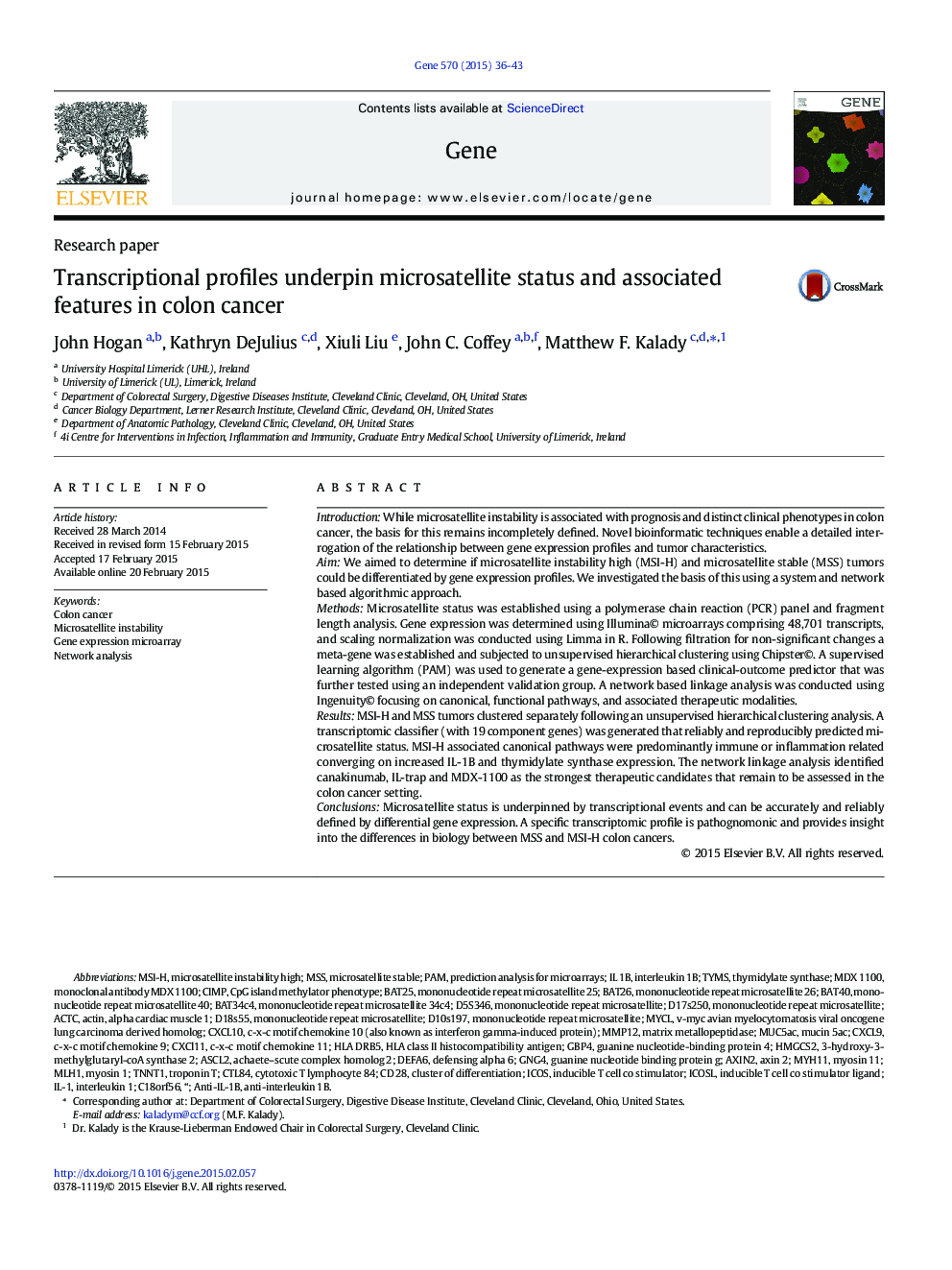| کد مقاله | کد نشریه | سال انتشار | مقاله انگلیسی | نسخه تمام متن |
|---|---|---|---|---|
| 5905362 | 1159880 | 2015 | 8 صفحه PDF | دانلود رایگان |
- Algorithmic approach to classification of MSI tumors
- Demonstration of genomic discrepancy between MSI-H and MSS tumors
- Application of Ingenuity in clinical oncology
IntroductionWhile microsatellite instability is associated with prognosis and distinct clinical phenotypes in colon cancer, the basis for this remains incompletely defined. Novel bioinformatic techniques enable a detailed interrogation of the relationship between gene expression profiles and tumor characteristics.AimWe aimed to determine if microsatellite instability high (MSI-H) and microsatellite stable (MSS) tumors could be differentiated by gene expression profiles. We investigated the basis of this using a system and network based algorithmic approach.MethodsMicrosatellite status was established using a polymerase chain reaction (PCR) panel and fragment length analysis. Gene expression was determined using Illumina© microarrays comprising 48,701 transcripts, and scaling normalization was conducted using Limma in R. Following filtration for non-significant changes a meta-gene was established and subjected to unsupervised hierarchical clustering using Chipster©. A supervised learning algorithm (PAM) was used to generate a gene-expression based clinical-outcome predictor that was further tested using an independent validation group. A network based linkage analysis was conducted using Ingenuity© focusing on canonical, functional pathways, and associated therapeutic modalities.ResultsMSI-H and MSS tumors clustered separately following an unsupervised hierarchical clustering analysis. A transcriptomic classifier (with 19 component genes) was generated that reliably and reproducibly predicted microsatellite status. MSI-H associated canonical pathways were predominantly immune or inflammation related converging on increased IL-1B and thymidylate synthase expression. The network linkage analysis identified canakinumab, IL-trap and MDX-1100 as the strongest therapeutic candidates that remain to be assessed in the colon cancer setting.ConclusionsMicrosatellite status is underpinned by transcriptional events and can be accurately and reliably defined by differential gene expression. A specific transcriptomic profile is pathognomonic and provides insight into the differences in biology between MSS and MSI-H colon cancers.
Journal: Gene - Volume 570, Issue 1, 1 October 2015, Pages 36-43
